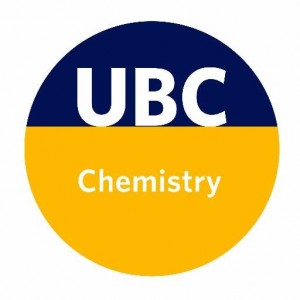 Editor’s note: This guest post comes from Amber Richardson, a UBC chemistry undergraduate who spent part of the past year researching study strategies for organic chemistry.
Editor’s note: This guest post comes from Amber Richardson, a UBC chemistry undergraduate who spent part of the past year researching study strategies for organic chemistry.
One of the products of her research is a fantastic study guide! Students interested in using the guide can download a copy for personal use (not for distribution) here: Richardson 2015 – student guide to studying organic chemistry
It’s midterm season. For students, it’s a time for studying, countless cups of coffee, and lots of stress. For some students, their late nights pay off and they achieve good scores on their exams. For others, their methods don’t produce the grades they desired. Some may say that those students didn’t study enough, while others say that the students were studying ineffectively.
Now you may think, “How can someone study ineffectively? They’re studying– that can’t be ineffective.” I tackled this question last year while completing a Research Learning Experience project with Dr. Jackie Stewart. It turns out that chemistry students use a variety of strategies1, including some that many instructors, and the literature, don’t consider to be effective2.
Previously, in CHEM 233, Jackie had offered a workshop after the first midterm for lower-achieving students. The workshop focused on study strategies that are more effective, with hopes to help students improve their standing in the course. Unfortunately, comparing changes in grades of those who attended versus those who did not showed that attending the workshop alone wasn’t improving students’ performance. So I set out to make a change to the workshops as part of my RLE project.
I developed a study guide entitled “CHEM 233: A Student’s Guide to Studying Organic Chemistry,” which was handed out to students who attended the workshop. The goal of the study guide was to provide “tips and tricks” for students on the most effective ways to study organic chemistry. The study strategies covered in the study guide were:
 Flashcards
Flashcards- Summary Notes
- Elaboration
- Concept Maps
- Practice Problems
- Studying in Groups
- Preparing for Lectures
- Resources
These strategies were chosen based on their potential helpfulness. All of these strategies have been proven to be effective, if used correctly. The guide gave a variety of strategies that students could use, along with the ideal situations that they would be applied, and examples that related to organic chemistry. Strategies such as flashcards and summary notes may be familiar to most students, but higher-level strategies such as concept maps could be foreign.
Students may be using some of the above strategies, but using them in an ineffective way. For example, flashcards are a common method used for memorization of vocabulary or pKa values, but they would not be effective for memorizing every possible reaction3. My goal was to clear up misconceptions that students may have had about each strategy and to show them a clear path they could take to be successful in CHEM 233.
Many students fall back on old study habits, some of which are not effective, expecting that their grade will improve if they just study more. Students need to be encouraged to reflect on how they studied and to change their strategies in order to see improvements in performance. Students also need to be reminded students that improved grades do not come from studying more, but from studying better. If more students learn to study more effectively, hopefully there would be fewer overwhelmed students, easier exams to mark (as there would be more right answers), and less stress all around.
References:
1. Chittleborough, G.; Treagust, D.; Mocerino, M. Sci. Educ. 2005, 16(1), 5-21.
2. Lynch, D.J. Coll. Stud. J. 2007, 41(1), 22-24.
3. Battino, R. J. Chem. Educ. 1992, 69(2), 135-137.
Students interested in using the guide can download a copy for personal use (not for distribution) here: Richardson 2015 – student guide to studying organic chemistry
 CHEM 233: A Student’s Guide to Studying Organic Chemistry by Amber Richardson is licensed under a Creative Commons Attribution-NonCommercial-ShareAlike 4.0 International License
CHEM 233: A Student’s Guide to Studying Organic Chemistry by Amber Richardson is licensed under a Creative Commons Attribution-NonCommercial-ShareAlike 4.0 International License
